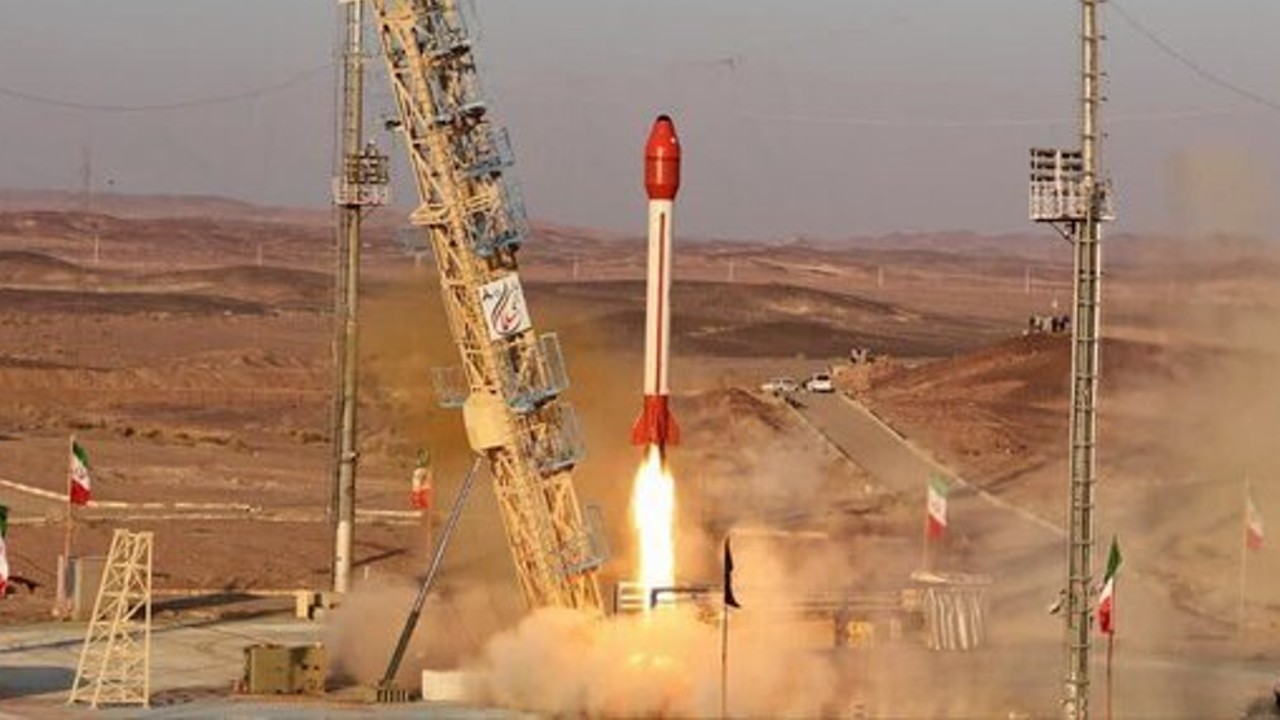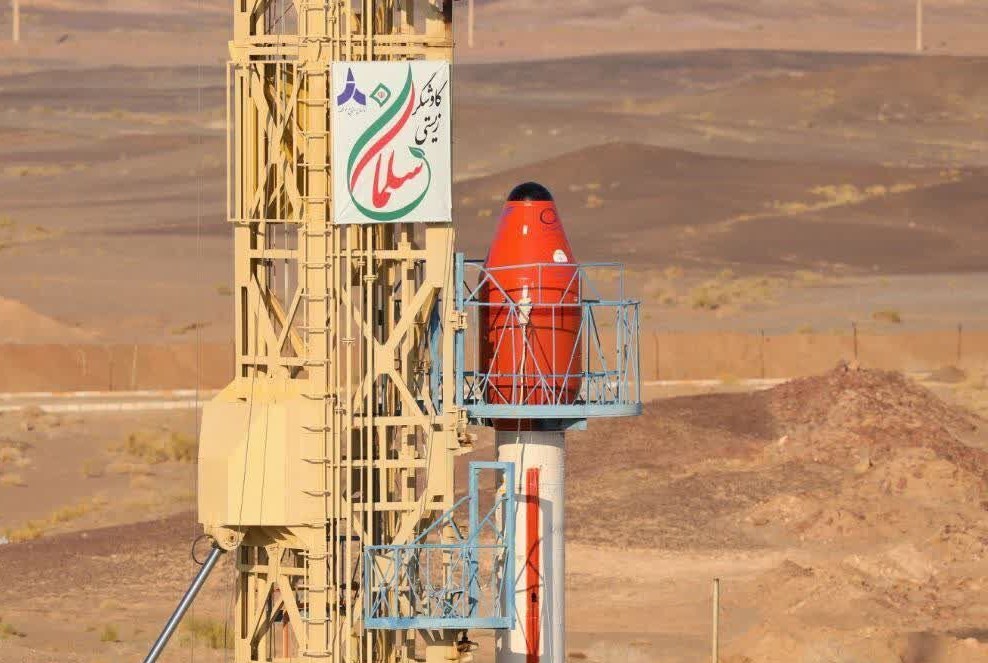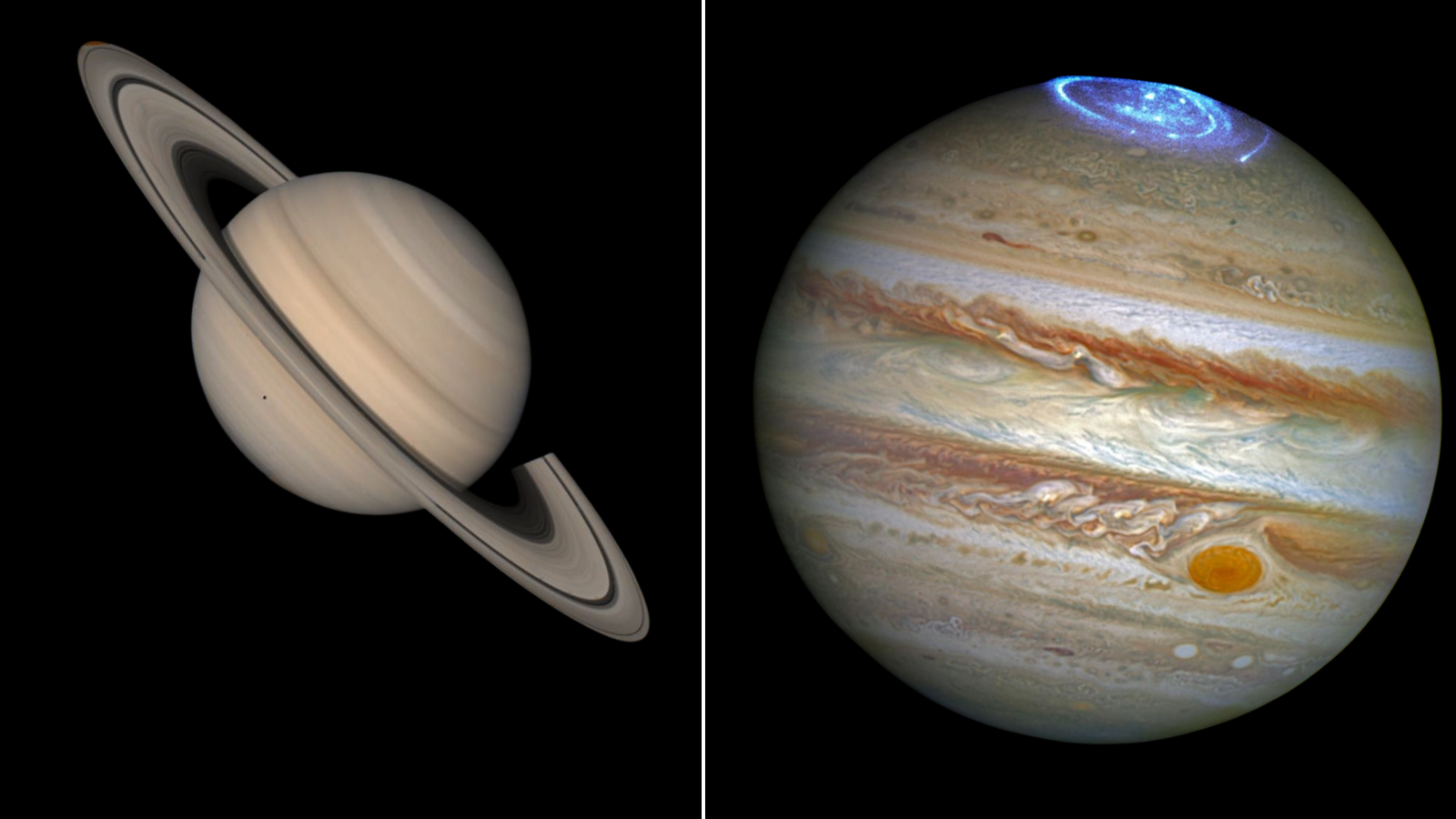Iran launches 'bio-space capsule' protoype, aims to fly astronauts by 2030
The nation wants its own astronaut crew capsule in space by 2030.

Iran successfully launched what is being described as an "indigenous bio-capsule" as part of its ambition to launch astronauts into orbit by the end of 2029, according to a senior official.
The launch took place on Wednesday (Dec. 6) and saw the capsule reach a height of 80 miles (130 km), according to Iran's Mehr News Agency. The capsule weighed 1,100 lbs (500 kg) and was launched atop one of the nation's Salman solid-propellant rockets.
Al Jazeera reports there were unknown animals aboard, but there is no official confirmation yet of what they might have been. Regardless of any animal occupants, the Iranian Space Agency says the capsule will help the nation put its own astronauts into space.
"In line with the implementation of the ten-year document of the country's space industry, the 'Life in Space' program has been revived and soon, God willing, the suborbital tests of the new generation 'bio-capsule' will be completely Iranian," the Jerusalem Post reported Iranian Communication Minister Eisa Zarepour as saying on Dec. 4.
Related: Iran launches 3rd military satellite to orbit
Hossein Dalirian, a spokesperson for Iran's space agency, shared a video of the launch on X (formerly Twitter).
Only three countries — Russia, the United States and China — have independent human spaceflight capabilities. India is working on becoming the fourth in the next few years with its Gaganyaan project.
Breaking space news, the latest updates on rocket launches, skywatching events and more!
Iran is currently only capable of launching small satellites to low Earth orbit. It would need to develop much larger and more reliable launch vehicles, a crew capsule and life support systems, reentry technology requiring material breakthroughs, parachute systems and more.
Iran will face difficulties accessing technologies being under US sanctions but the country recently increased its space cooperation with Russia, signing deals for new satellites. The former Soviet Union became the first country to launch a human into space in 1961 with Vostok 1.
Russia has been largely isolated since its February 2022 invasion of Ukraine and has lost civil and commercial space partners.
Iran has previously claimed it has sent monkeys to space on suborbital flights. These claims have been disputed.

Andrew is a freelance space journalist with a focus on reporting on China's rapidly growing space sector. He began writing for Space.com in 2019 and writes for SpaceNews, IEEE Spectrum, National Geographic, Sky & Telescope, New Scientist and others. Andrew first caught the space bug when, as a youngster, he saw Voyager images of other worlds in our solar system for the first time. Away from space, Andrew enjoys trail running in the forests of Finland. You can follow him on Twitter @AJ_FI.

